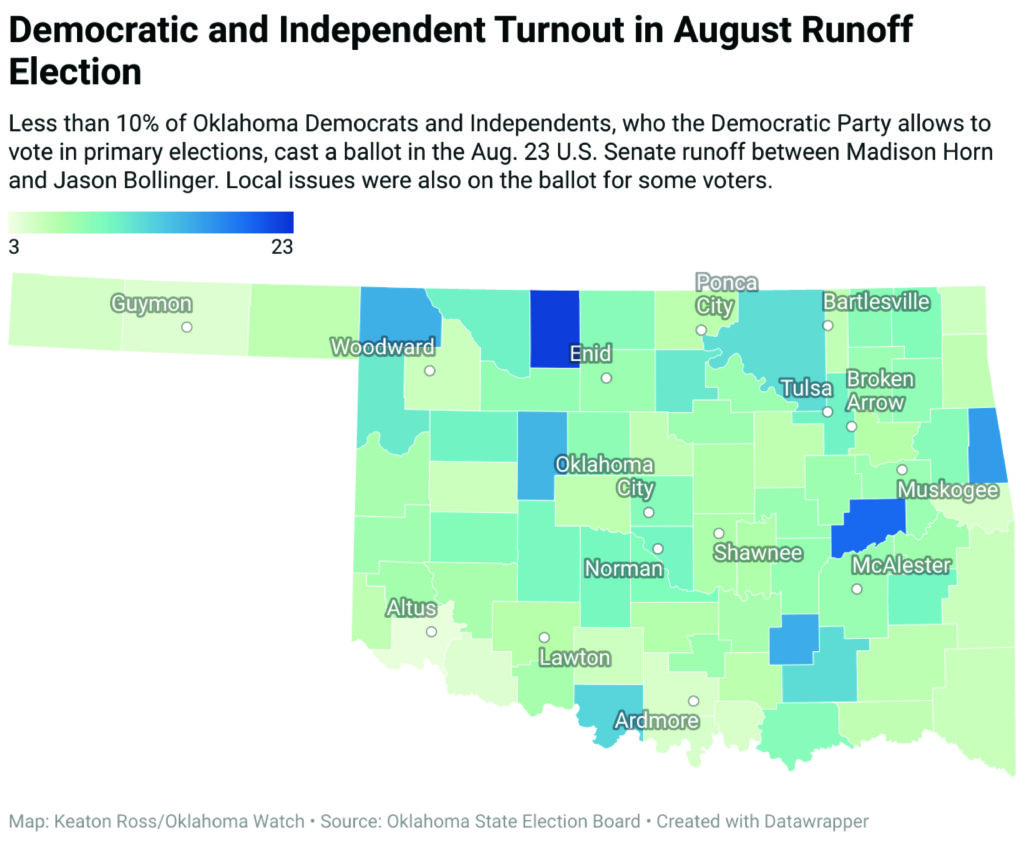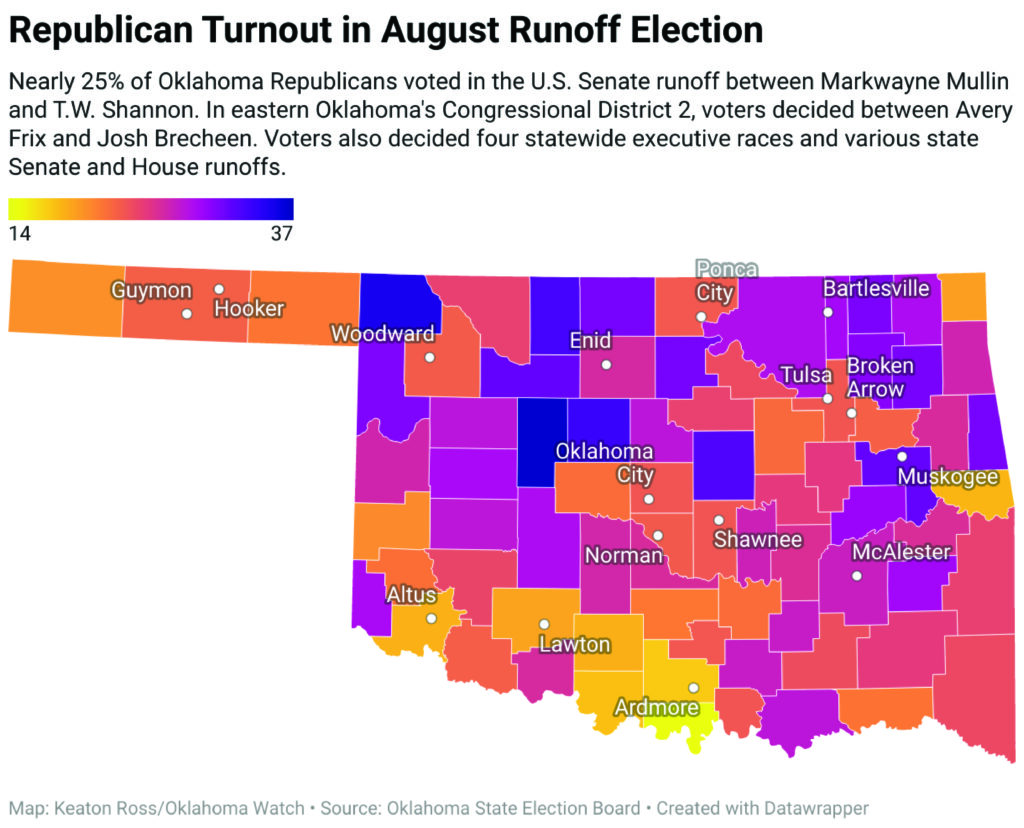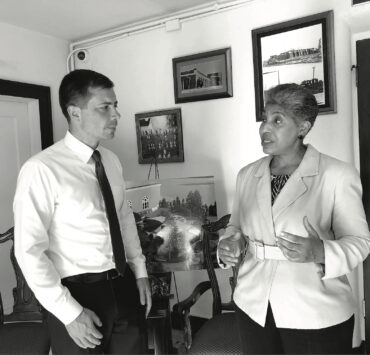Keaton Ross
Oklahoma Watch
ILLUSTRATION
The Oklahoma Eagle
The vast majority of Oklahoma voters, with the exception of Libertarians in places with no local races, were eligible to participate in last week’s runoff election.
Most did not cast a ballot, according to unofficial results posted on the Oklahoma State Election Board website.
About a quarter of registered Republicans voted in last Tuesday’s U.S Senate runoff between Markwayne Mullin and T.W. Shannon. Turnout was generally higher in districts with a state House or Senate runoff on the ballot, as well as eastern Oklahoma’s second congressional district, where party members selected former state senator Josh Brecheen as their nominee.
Less than 10% of registered Democrats and Independents, who the Democratic party permits to vote in their primaries, voted in the U.S. Senate runoff between attorney Jason Bollinger and cybersecurity expert Madison Horn. Voters elected Horn, who will face incumbent Sen. James Lankford on Nov. 8.


The August runoff has historically been a low turnout affair. It’s not uncommon, particularly in years where state offices aren’t up for reelection, for either major party to have no statewide runoff on the ballot.
Some election reform groups, including the Oklahoma Academy, say state lawmakers should nix the August runoff, arguing that reducing the number of elections tends to increase voter turnout and engagement. Oklahoma is one of 8 states that requires all candidates to win a majority of votes before advancing to the general election, according to the National Council of State Legislatures.
Like Oklahoma, most states nominate candidates in a closed or semi-closed primary. As an alternative, states like Nebraska and California use a jungle primary system where the top two vote-getters, regardless of their political affiliation, advance to the November general election.
The Oklahoma legislature has not seriously considered an electoral overhaul in recent years, though I’ll be watching to see if this issue comes up when the lawmakers convene in February.











